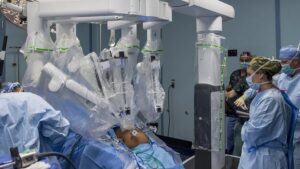
Day Treatment Programs or partial Hospitalization programs have become an essential aspect of many well-rounded Addiction Recovery Programs in Massachusetts. These programs provide a level of care that is both intensive and structured, bridging the gap between inpatient and outpatient therapy. They enable clients to retain some degree of independence while receiving the necessary support.
This blog will help you understand the benefit of choosing Day treatment programs for your addiction recovery. So, let’s get started!
Day Treatment Programs: What are they?
Day treatment programs are intended for people who need intense care but do not require round-the-clock supervision. These programs concentrate on both the psychological and physical elements of addiction, usually combining individual treatment, group therapy, and educational sessions. Typically, participants spend a few hours a day, multiple days a week, in the program before leaving in the evening to go home.
How Day Treatment Programs can help you in recovery?
- All-inclusive Care
Day treatment programs in Massachusetts frequently offer an all-encompassing strategy for healing, attending to the psychological, emotional, and physical facets of addiction. In addition to therapies like dialectical behavior therapy (DBT) and cognitive-behavioral therapy (CBT), this comprehensive care may involve pharmaceutical management, mental health monitoring, and medical supervision (DBT).
- Adaptability and Self-reliance
The balance that day treatment programs provide between intense care and individual autonomy is one of its benefits. In the evenings, participants can go back home, enabling them to stay in touch with their families, take care of personal matters, or even start the process of readjusting to their work or educational settings. This adaptability can be especially helpful for those who require continuous assistance but are unable to dedicate themselves to full-time residential care.
- Stopping Relapses
Day treatment centers are essential for preventing relapses. Individuals can stay on track with their rehabilitation with the help of ongoing monitoring, peer support, and frequent therapy sessions. Furthermore, the abilities acquired throughout day treatment, like stress management and coping mechanisms, are crucial for sustaining long-term sobriety.
- Making the Switch from Inpatient Care
Day treatment might be a useful step-down option for people who have finished an inpatient program. Making the abrupt switch from inpatient to outpatient care can be difficult since there is less structure and support, which raises the possibility of recurrence. Day treatment offers a smooth transition, enabling patients to gradually become acclimated to a lower degree of care while still getting a lot of assistance.
- Structured Recovery
The routine and stability these programs provide are crucial for many people in recovery to form new, healthy behaviors. By keeping participants interested and accountable, the regular schedule lowers the likelihood of relapse and helps them stay focused on their recovery objectives.
Conclusion
Day treatment programs are an essential component of many well-rounded rehabilitation strategies because they provide a special combination of independence, support, and structure. These programs offer the intensive care required to support long-term recovery while enabling clients to preserve significant components of their everyday lives, whether they are utilized as a step-down from inpatient care or as the primary treatment modality.






